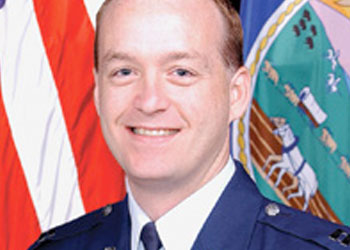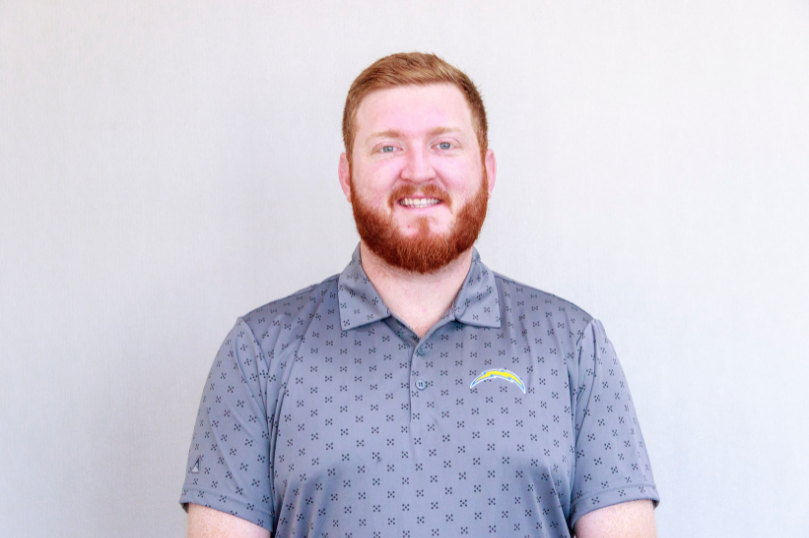By Chris Hill
It’s been a semester or more since you’ve seen him. You responded to an occasional Facebook post and tagged him in a couple of photos. But it’s been a while since you’ve hung out with him in person. More and more of our chapter brothers are military deployment veterans. What should we do to ensure our brothers-our heroes, are supported and provided the tools they need to return college life?
Many of our military chapter brothers are members of the Reserve or National Guard. These individuals serve part time and go to college full time. That is until they get the call of their mobilization. Many deploy for as long as 12-24 months. When they return to the chapter house your brother remembers life as he left it, time has stood still for him in terms of memories and college experiences. For you and the rest of the chapter, life has moved on. Not to say there is anything wrong with that, but it is a reality that is sometimes difficult to deal with for our returning brother.
How do I deal with him? What should I say? How should I act? These are questions that many ask when a service member returns home. The easy answer is … deal with him the same as before, say the same things as before, act the same way as before. Your job is to remind your brother that he is among friends – among brothers. Make sure he knows you are glad to have him back and that you want to hear about his experiences, if he is willing to share.
It is also important to understand the transition your chapter brother is going through. Transitioning from a combat environment to a college environment provides a set of unique challenges and a fair amount of stress. The visible transitions include the exchange of camouflage uniform for school sweatshirts. There are far more issues that are much more subtle and much more complex.
Many of our returning veterans return to college following an extended period of exposure to severe emotional or mental trauma, hyper-vigilance and an extremely stressful working and living environment. As they return to campus some may experience frustration adjusting to the demands of college life. That may seem hard to grasp as they are no longer in a life and death situation, however, the move from a highly structured highly stressful environment to the life of a college student is quite a dramatic paradigm shift. In addition if they are dealing with emotional stresses due to their deployed experience, their cognitive abilities may not be cruising at top speed – this may interfere with their ability to study, concentrate and perform academically. These stresses may also spill over into their relationships with their fellow chapter brothers, family and generally affect their ability to function in a social setting. All of these issues, when combined with the challenges related to returning to civilian life, place your chapter brother at a significantly higher risk of dropping out of college.
All service members, whether they have seen combat or not, face a major transition when returning from military life to college life. Some particular issues may include:
Alienation. Military members are returning from an intense and close community built on common experience. They can feel alienated in the University environment, where people may not seem to understand the difficulties military members faced or the challenges they endured. In addition, some service members who are returning to college after military service will be older than many other new students and have different priorities.
Family/relationships. Veterans return home to families who have had to learn to make due with their absence. The transition can involve difficult adjustments for all involved, including the children of military members, some of whom may be fellow students. It is important to remember that, because the lives of these returning service members touch so many lives, the impact of their transition home will be widely felt in your community.
Education. Many of the issues veterans will face are common to nontraditional students as they return to school after years away and re-learn their academic habits and skills. Veterans may have an additional adjustment to make, e.g., because the routines of military life are regimented, they can more easily become frustrated by the less structured academic life. While in the military, these veterans may have made life or death decisions and now their decisions are about keeping up with class assignments. Some veterans may feel their responsibilities as a student are less important or significant which may lead to a lack of effort or involvement.
Mental health and disabilities. It should not be assumed that all returning veterans suffer from serious mental health issues. However, anxiety issues related to deployment are common. Some veterans are also making a physical transition, learning to live with new disabilities. Strong and supportive communities can ease the transition for all of these veterans, as can ensuring that veterans are aware of the appropriate resources. Look up your Veterans Resource Office on your campus for more information.
Remember, your chapter brother made the decision to put his life on the line for your fellow chapter brothers and the nation. While his return to the chapter may include some challenges, more often than not these challenges can be overcome. I’ll conclude with some things to consider as your chapter prepares to welcome home your deployed Phis.
Create a welcoming environment: Welcoming them home; Express your appreciation for their service; Offer to help; Support with patience, and listening; Understand that returning to normal can take time
Have a conversation – questions, conversation starters: What did you do and where did you go while you were in the military? (Don’t assume all veterans served in Iraq/Afghanistan.); How are you and your family doing?
You should avoid: Pressuring a veteran regarding specifics about their service they choose not to share with you; Minimizing the challenges a veteran might face; Making assumptions about any veteran’s political or foreign policy views; Singling out a veteran without prior approval.
Inappropriate questions: Did you kill anyone? Did you see anyone die? Are you glad you’re back? Did you miss your family? Do you have to go back? Do you think we are winning over there? Is it all worth it?
Looking out for one another, being our brother’s keeper, to do what ought to be done – all are values and traits that we Phis hold true. In the Air Force we talk about being “Wingmen” for our fellow Airmen. This value of looking out for our friends and brothers is a human trait and a trait that as Phis we should hold above all else. So as we prepare to welcome home our military brothers keep in mind that their experiences may not be your experiences, their stress may not be your stress. But that does not change the fact that as brothers we should ensure that we have the backs of our brothers. If they are exhibiting signs of stress or risk factors as I discussed above – talk to them! It’s amazing how cathartic a conversation with a brother Phi can be.
Major Chris Hill is the Wing Executive Staff Officer & Community/Public Affairs Manager for the Kansas Air National Guard’s 190th Air Refueling Wing at Forbes Field Air National Guard Base. Chris graduated from Washburn University with a BA in Communications and Oklahoma State University with a MA in Communication. Chris is also an adjunct professor at Washburn University and Friends University where he teaches communication courses such as Organizational Communication and Public Speaking. Chris has served as Chapter Adviser to Kansas Beta and the Kansas Eta Colony, President of the Nu North Province and Education Commissioner. He and his wife Jen and children Jay and Bailey reside in Topeka.





